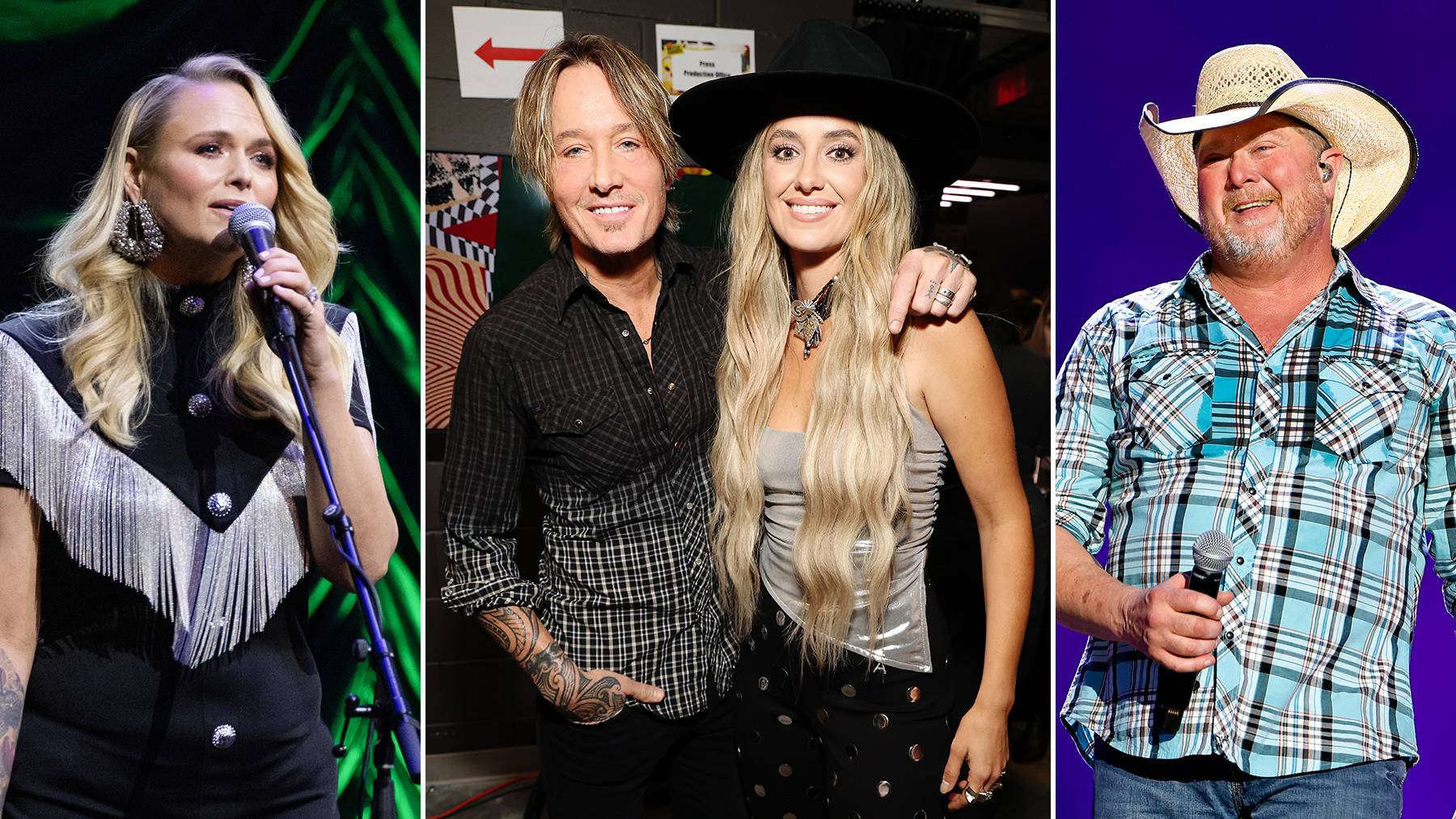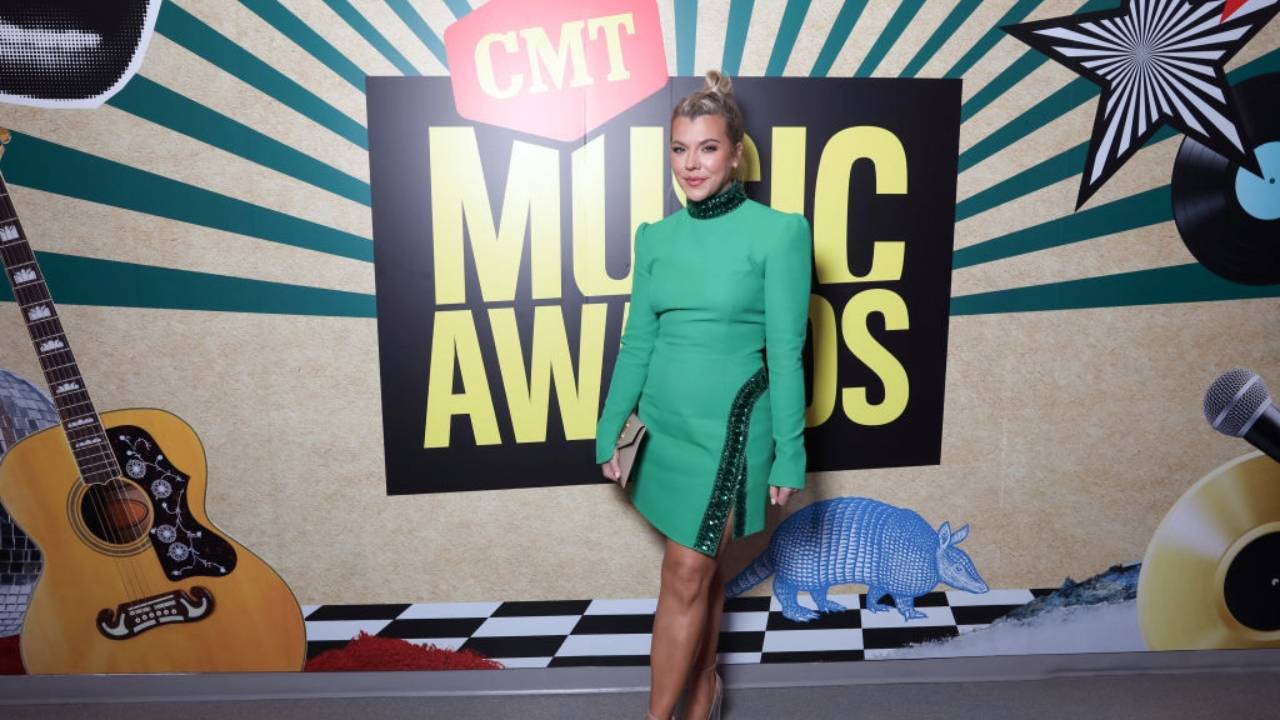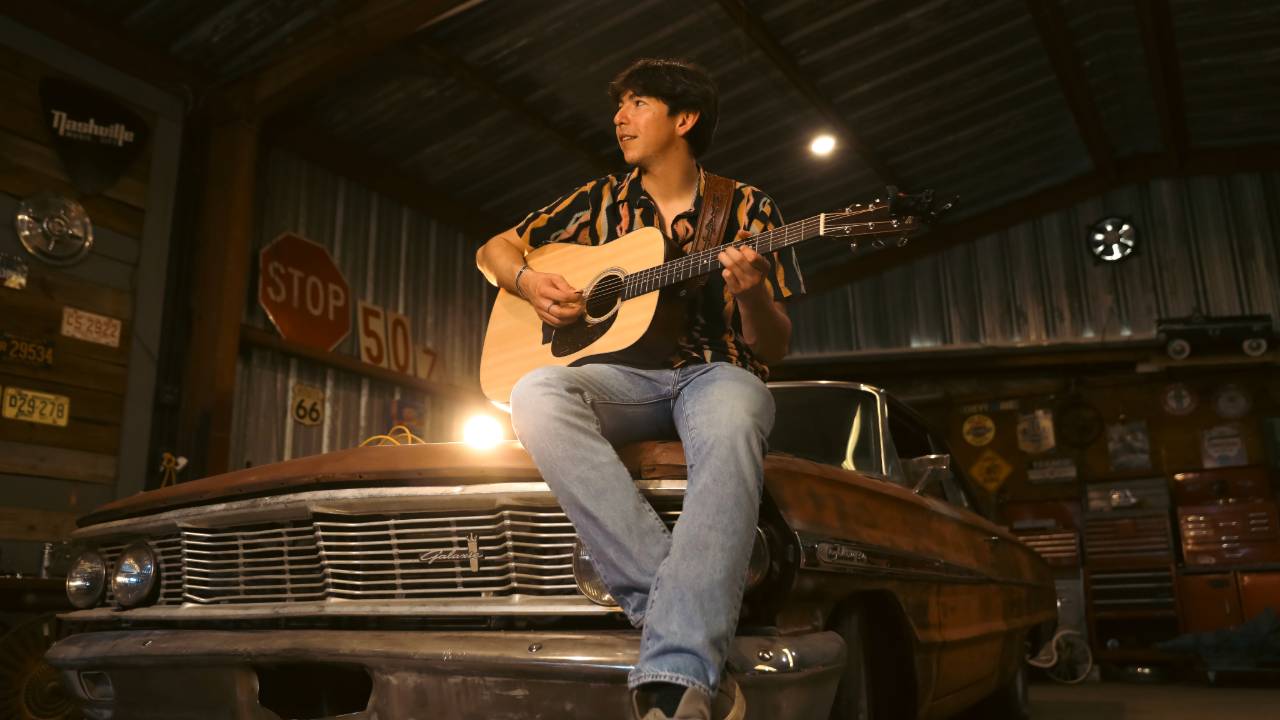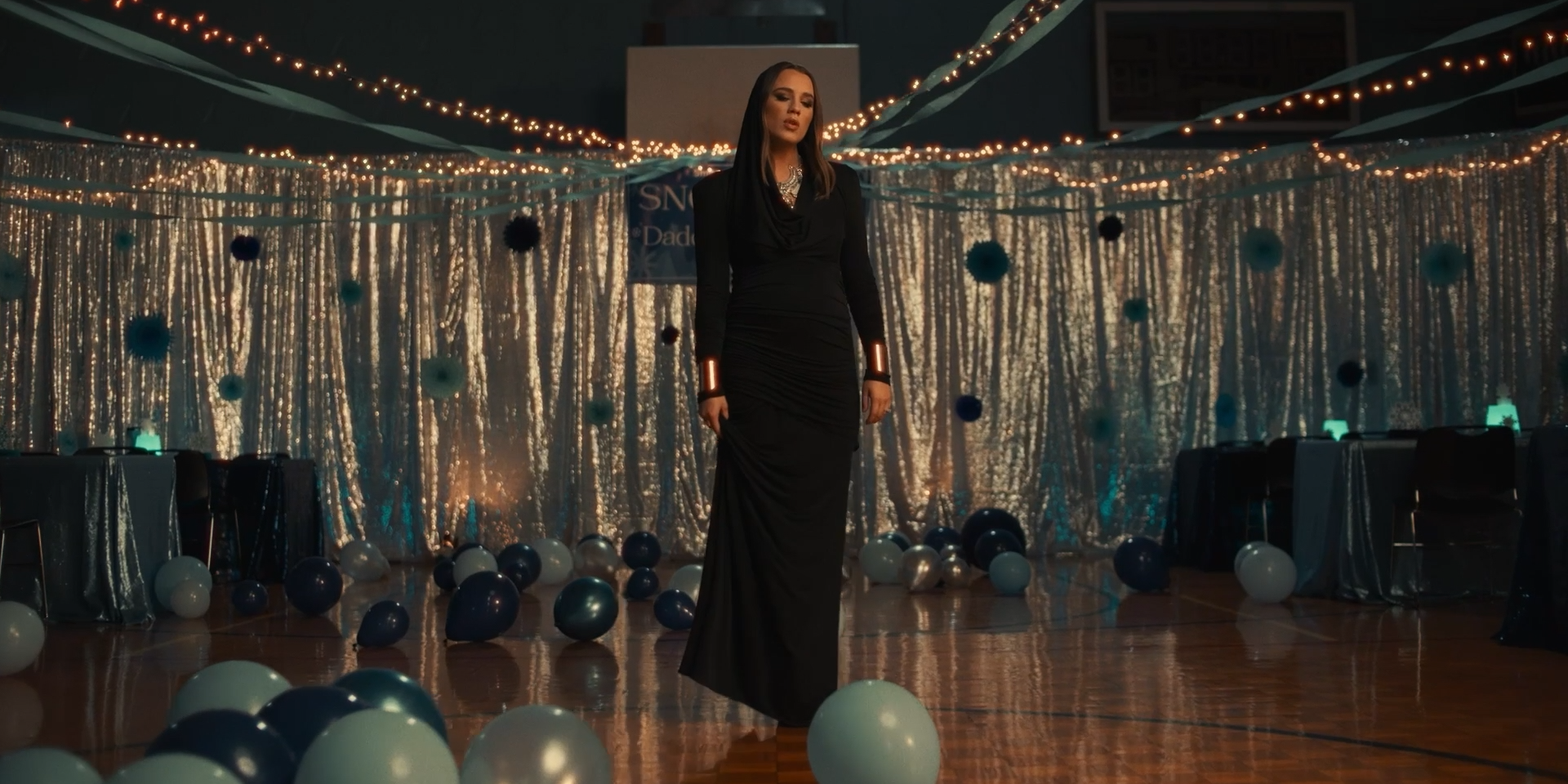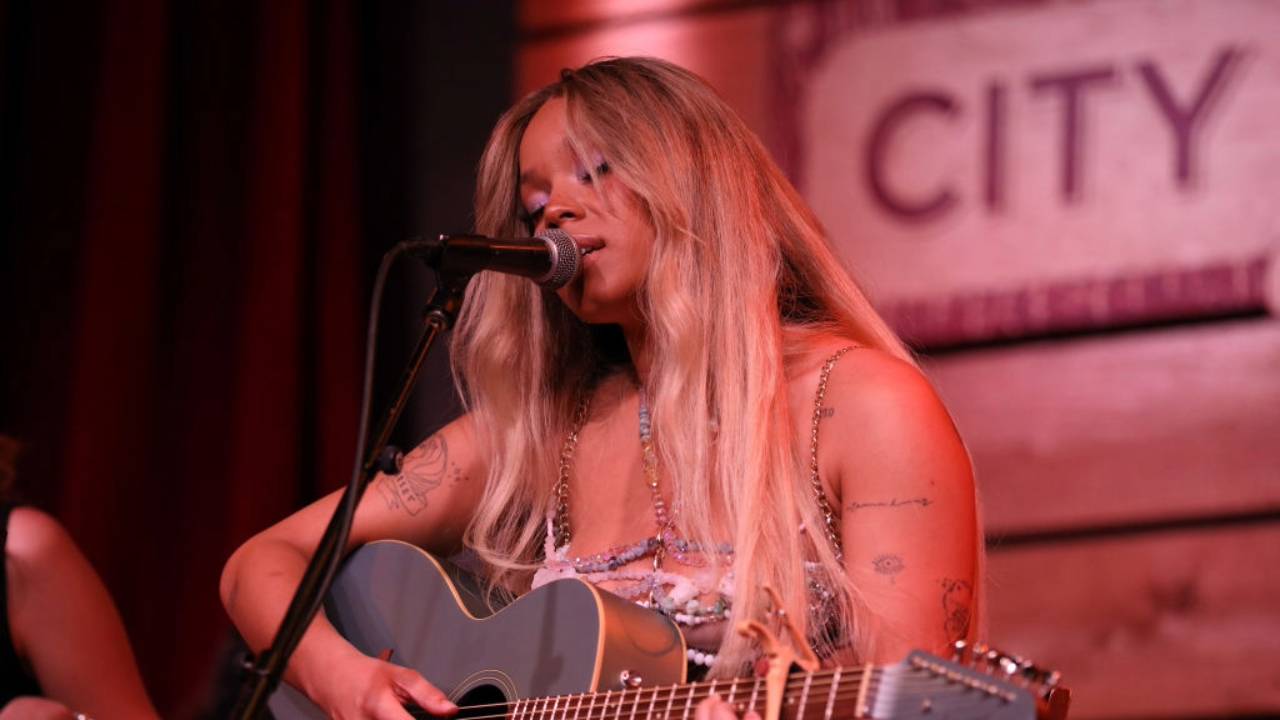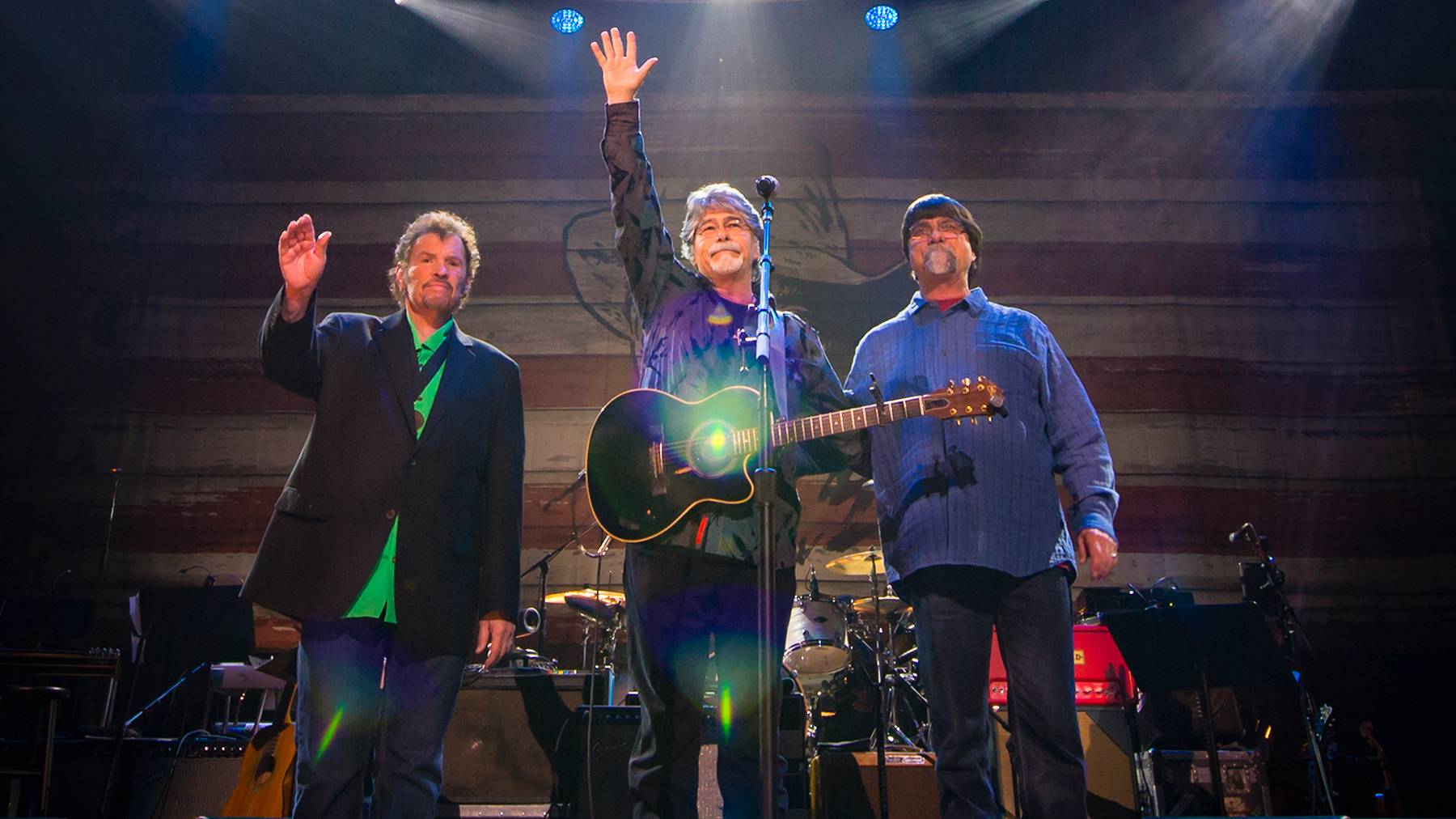Harold Bradley Prepares to Enter Country Hall of Fame
(Editor's note: Harold Bradley will be inducted into the Country Music Hall of Fame alongside Sonny James and George Strait during the CMA Awards show on Nov. 6 in Nashville.)
Harold Bradley is a team player, and not even his impending induction into the Country Music Hall of Fame diverts him from his collective outlook. If he had his way, the youthful-looking 80-year-old insists, he'd be entering the Hall in the company of all the other players on Nashville's "A Team." That fabled group, in various configurations, played on virtually every hit record that came out of Nashville between the late 1940s and the late 1970s.
Of course, you might expect such a sense of solidarity from the man who's headed the Nashville branch of the American Federation of Musicians for the past 15 years. When he's not recording, Bradley is busy organizing local musicians and seeing to it that they are paid well and properly.
Every true country music fan knows Harold Bradley well -- if not by biographical chapter and verse then certainly through the infinity of hits he's graced with his guitars. These include Alan Jackson's "Here in the Real World," Patsy Cline's "Crazy," "I Fall to Pieces" and "Sweet Dreams," Lefty Frizzell's "Long Black Veil," Eddy Arnold's "Make the World Go Away," John Anderson's "Swingin'," Loretta Lynn's "Coal Miner's Daughter" and Roy Orbison's "Crying," just to name a few.
Then, to name a few more, there's Burl Ives' "Holly Jolly Christmas," Hank Williams' "Rambling Man," Elvis Presley's "Devil in Disguise," Roger Miller's "King of the Road," Jim Ed Brown's "Pop a Top," Tammy Wynette's "Stand by Your Man" and Conway Twitty's "Hello Darlin'."
By having worked at it steadily for the past 60 years, Bradley has become known as "the most recorded session musician in history."
"If somebody thinks they've recorded more than I have," he says with a grin, as he sits at a conference table in the union hall, "I'll pay half and they'll pay half, and we'll have somebody count them."
Even Bradley doesn't know how many sessions he's done, but he calculates it would be in the "thousands." Since 1959, he notes, he's earned more than $2 million in session wages. And he's still booking them. Recent clients have included gospel singer Aaron Minick, Hawaiian vocalist Melveen Leed and Irish artist Sandy Kelly.
Bradley learned to play guitar on his own, but he got into the professional side of picking through his brother, the late Owen Bradley, who was 11 years his senior. Although he started as a big band musician, Owen Bradley went on to become one of the most successful and revered producers in country music. He was inducted into the Country Music Hall of Fame in 1974.
"[Guitarist] Billy Byrd starting dating a girl who lived down the street from me when I was about 12," Bradley recalls. "He was copying [the style of] Charlie Christian, who was the first electric guitar player of note. ... Billy would come to date this girl, and he would bring rhythm guitar, an electric guitar and an amplifier. I'd play rhythm for him, and he'd let me play the electric."
Besides Christian, Bradley lists his guitar "heroes" as George Vaughn, Les Paul, Chet Atkins, Hank Garland, Grady Martin, Barney Kessel and Joe Pass. "I lean more toward the jazz [players]," he explains, "because I came out of the big band era."
In 1943, just after he'd finished his junior year at Nashville's Isaac Litton High School, Bradley joined Ernest Tubb's band. "Owen called me and said, 'Listen, Tubb's guitar player just left. So why don't you go on the road with him this summer?' I said, 'What! And play that old corny country music?'"
But that's exactly what he did. In the process, he became only the second electric guitarist to play on the Grand Ole Opry, which had banned the instrument until Tubb refused to play without it.
"Ernest and I became the greatest of friends until he died," Bradley says. "He'd come by in the morning and get me, and we'd go play the early morning radio show. And we'd go to the Pie Wagon, which was just a half a block down Seventh [Avenue] away from [radio station] WSM. We'd be eating breakfast, and this guy, Eddy Arnold, would come in by himself. I had seen Eddy Arnold on the Opry occasionally [when he was with] Pee Wee King & the Golden West Cowboys."
After breakfast, Bradley continues, "Eddy and I would get on the streetcar, and we'd go to the end of the line, which was the end of North First Street, where it became Dickerson Road. I'd walk two and a half blocks out to where I lived, and he walked almost all the way out to Trinity Lane to the trailer park where he lived. So we just became the greatest of friends. When I came out of the Navy, he used me on the Opry, which I'm really very grateful for. And I was grateful to him for letting me work on his last three albums. It was a great thrill."
Following Bradley's two-year stint in the Navy, he enrolled at Nashville's George Peabody College. "I couldn't read music," he says. "I tried to learn to read, but I had to major on bass because they didn't have a guitar teacher. When I was 35 years old, Chet [Atkins] introduced me to a classical guitar player who was teaching at Blair [Academy] named Bunyan Webb. So I took three classical guitar lessons from Bunyan. But I never had any real formal training."
Bradley played on his first recording session in 1946, backing King. The session took place in Chicago. "There were no recording studios in Nashville then," he points out. "People don't realize it, but you can date the recording industry in Nashville back to 1947 [when Castle Recording Studio opened]. Everybody thinks this industry has been here forever, and it really hasn't."
In 1947, Owen Bradley hired his younger brother to play on a jingle for a Nashville jeweler. "I think I got $17 for that, and they must have played it for 17 years. I was so happy. I'd drive home in the car in the afternoon, and I'd hear that jingle. And I'd think, 'Boy, I've really made it.' It really is a great reward to hear something on the air like that that you've done."
After dabbling in film production together in the early '50s, the Bradley brothers opened their first recording studio in 1955 in a reconverted dwelling on 16th Avenue South. Later, they attached an Army surplus Quonset hut to the building, and this complex became the heart of what is now called Music Row.
"Basically, Owen and I were doing all this for the music," Bradley maintains. "We weren't doing it for the money, idiots that we were. The money happened to come along. When we sold the studio -- the Quonset hut -- we owed money. ... We had three studios over a period of 10 years, and we didn't take any salary or make any money. We just put whatever we had back in, and we'd support ourselves by playing whatever we were doing -- television shows, dance bands, record sessions and anything else that would come along."
(Oddly enough, one of the first hits to emerge from the Quonset hut was Sonny James' "Young Love" in 1956. It went No. 1 on both the country and pop charts. James is being inducted along with Bradley into the Hall of Fame.)
Owen Bradley became the head of Decca Records (later MCA) in 1958 and henceforth concentrated on producing the stars on that roster -- such eminences as Patsy Cline, Loretta Lynn, Webb Pierce, Red Foley and Brenda Lee. Harold Bradley, however, played on sessions for all the labels.
He became a recording artist in his own right during the 1960s when he recorded the Columbia Records albums Misty Guitar, Bossa Nova Goes Nashville and Guitar for Lovers Only. Lushly arranged and featuring the Anita Kerr Singers, these are essentially pop albums with country seasoning.
"I know that Columbia probably signed me to be the answer to Chet Atkins," Bradley says. "Nobody's the answer to Chet Atkins. And I didn't play that style anyway. ... I'm still very proud of them."
Much in demand, Bradley says it was common for him to do four three-hour sessions a day. Occasionally, he would do five -- and nap in the drum booth in the off hours. He went on the road to play only rarely. When he was in college, he took off a couple of weeks to tour Texas with Pee Wee King. He didn't return to the road again, he says, until 1984, when he accompanied his old friend, Slim Whitman, to England. He also toured England with Floyd Cramer and Ireland with Sandy Kelly. But, for the most part, he's worked his musical wonders in Nashville.
Bradley confesses he was never been able to predict which of his sessions was yielding a hit. "There were so many things that we did that were so good musically that, until I started producing [and had to look for hits], I was just listening to the music. ... We used to tell all the artists that we were the most important thing in the session. We lied. They are."
Many sessions remain distinct in Bradley's mind. He remembers that he and his fellow musicians had to work for four hours to get the sound right for Patsy Cline's "Crazy," which Owen Bradley was producing.
"At that time," he points out, "we were getting three or four songs a session. If we didn't do that, we felt like they'd take us out in front of the firing squad and kill us. But my brother didn't care about that. All he cared about was getting the record like he wanted it."
One thing that hampered them on the session was that Cline wasn't there to lay down the vocals. She was still recovering from a near-fatal car accident that had broken her ribs and prevented her from hitting and holding the notes. Nor was Willie Nelson's demo of his song of much help. Owen Bradley heard it much differently. That being the case, he had to coach the musicians through his vision of the song phrase by phrase. They had no written music and not even the usual charts to go by. But Harold was delighted by what the players eventually came up with -- as have been millions of fans.
"Then there was one thing I recorded with Alan Jackson," says Bradley, alluding to "Here in the Real World." "I went home and told my wife, 'That guy's really a good country singer, but I don't know if he'll make it because things are not going in a country direction right now.'"
Bradley recorded with Elvis from 1962 to 1967. "He was such a nice guy to work with. He was a quick study. He'd go over and play the demo acetate and listen to a bunch of them. When he finally found one he liked, by the time he walked from there back over to the mike, it seemed like he knew the song."
Having witnessed 60 years of ups and downs in country music, Bradley tends to be philosophical about it, always looking for a balance between the integrity of art and the demands of business. As he views it, both the music and the business have changed "drastically" within the past two or three years. "Country music is rock 'n' roll," he observes. "We've lost that country music art form."
But he's seen such swings before and finds relief in the fact that country has always found an antidote to rock infections. Atkins and Owen Bradley concocted the slick Nashville Sound style, drenched with strings and choral voices, to counteract the first rock invasion. Buck Owens' hard-driving Bakersfield Sound, he remembers, competed successfully against the Beatles.
"So we've always started from zero and gone in a circle," Bradley says, "Actually, I fear for us a little bit, and yet they're selling records like crazy. If you think about it, Marty Robbins might have had a No. 1 country record with 30,000 sold. Then you see some of these people selling 2 and a-half million in a year -- and they're really not hard country songs. Maybe they're doing something right. As long as they do it in Nashville, I'm going to be on their side."
Given the Country Music Hall of Fame's tilt toward singers and songwriters, Bradley says he never expected to be inducted. But three years ago, the Hall brought in the late pianist Floyd Cramer, an original member of the A Team. Now, with his own induction, Bradley is hoping the Hall will quickly welcome "en masse" the remaining members -- guitarists Ray Edenton, Hank Garland and Grady Martin, steel guitarist Pete Drake, drummer Buddy Harman, fiddler Tommy Jackson, bassist Bob Moore, pianist Hargus "Pig" Robbins, saxophonist Boots Randolph and harmonica player Charlie McCoy.
"These guy carried this town for 30 years," Bradley asserts, a note of indignation creeping into his voice.
And Bradley would like for the Hall to recognize some of the stellar musicians who preceded the A Team, back when the Nashville recording industry was just getting on its legs. He also frets that recording engineers aren't getting the respect they deserve. "They're totally forgotten in this town and totally unrewarded financially," he says. "I bleed for them, and I wish I could do something for them."
Bradley dismisses the idea some critics have advanced that he has always labored in the shadow of his brother. "I never really felt that," he says. "I miss Owen, and I'm mad that he left us so quickly. I wish he was still back here. We did it all for the music. We disagreed. I always wanted to put more chords in a song, and he always wanted to take them out. But he was proud of me, and I was extremely proud of him."
Summing it all up, Bradley concludes, "It's been a very wonderful and rewarding life -- to start off as a pop musician and then be able to make a wonderful living as a country player and a rock 'n' roll player when I wasn't that talented in those areas. But I learned to do my part."
